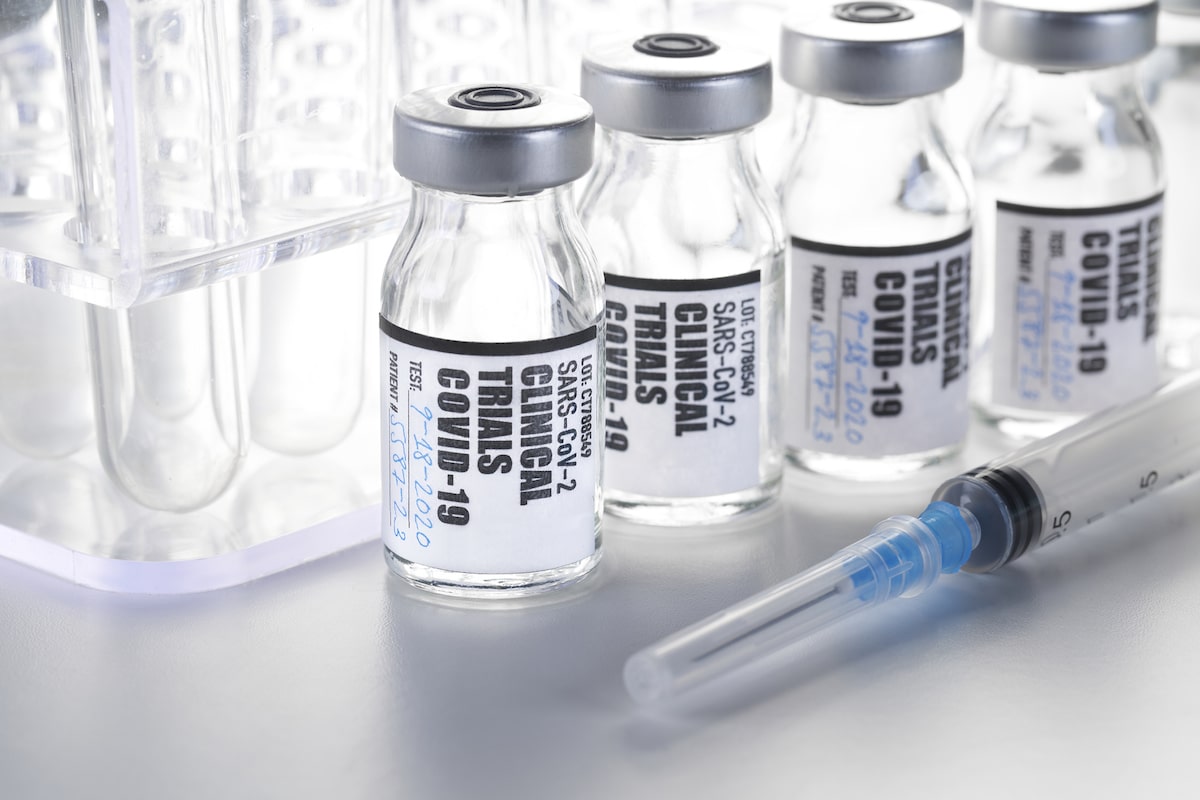<< Back
Vaccine Questions? This Frontline Doctor has Some Answers

December 22, 2020
Frontline workers at The Hospital of Central Connecticut (HOCC) in New Britain, and hospitals across the Hartford HealthCare system, are receiving the COVID-19 vaccine.
“I am hopeful that the vaccine will finally lift us out of this difficult time,” said Dr. Michelle McDade, Associate Chief of the Emergency Department at The Hospital of Central Connecticut. McDade, who has two decades of experience in medicine, has been on the front lines of the pandemic since it began in March.
“I have seen the death and long-term complications of COVID-19 firsthand,” she said. “My fear of COVID-19 is far more significant than any unknowns of the vaccine.”
Dr. McDade answers some questions you may have about the COVID vaccine:
How does the COVID-19 vaccine work?
Previous vaccines have consisted of either a dead virus or a weakened form of a live virus. The vaccine for COVID-19 is entirely different. It is made from messenger RNA, which is a fancy term for a molecule with a code that prompts the body to create spike proteins similar to the appearance of the COVID virus. If an immunized person gets exposed to the actual virus, the body will recognize the spike protein and initiate a response to destroy it.
Could I get COVID-19 from the vaccine?
No. The vaccine neither contains nor causes COVID-19. A person may experience body aches, fatigue, or flu-like symptoms for 24 hours after getting the vaccine. This is actually an indicator that the body is responding appropriately to the spike protein and creating a defense against COVID-19.
How long will the protective effects of the vaccine last?
It is currently unknown. The vaccine for COVID-19 is predicted to create immunity that lasts one to two years if the full two doses of the vaccine are administered. Similar to other vaccines, such as the flu vaccine, there may be a need for additional booster shots. Experts estimate boosters may be required every year.
Can I just wait to get the vaccine?
The important concept to understand is that if many people receive the vaccine in a short period of time, then the COVID-19 virus can be eradicated. If large groups of people hold off on vaccination, then the COVID-19 virus will thrive in those populations.
Should I worry that this vaccine got made too quickly?
Past vaccines that were made of dead or live viruses were grown in petri dishes and then purified to a medical grade, which is very time-consuming. Every step had great potential for error, which took additional time to rectify. The process for creating the COVID vaccine is much simpler, requires fewer steps, and has been in development since the virus was first identified in Wuhan, China. Therefore, the speed at which this vaccine has been created may seem fast, when in fact the process is just different. The other factor that has decreased development time is related to abundant funding.
Do I still need to wear a mask if I get vaccinated?
Yes. We know that once an individual is vaccinated that individual is protected from getting sick with COVID-19 symptoms. However, right now we don’t know if the vaccine prevents individuals from carrying the virus and spreading it to others despite not having symptoms themselves. Studies on this still have to be conducted.
Ewelina McDade, Manager of Nursing Education at The Hospital of Central Connecticut, also contributed to the information in this article. For more vaccine information, click here.
If you’re 75 or older and wanted to schedule your COVID-19 vaccine, log into your MyChartPlus account and find a Hartford HealthCare vaccine clinic near you. If you don’t have a MyChartPlus account, set one up here.